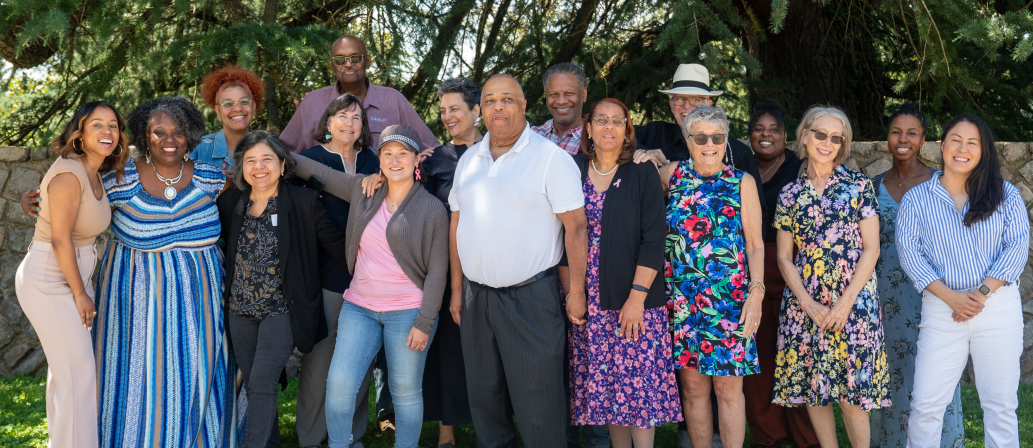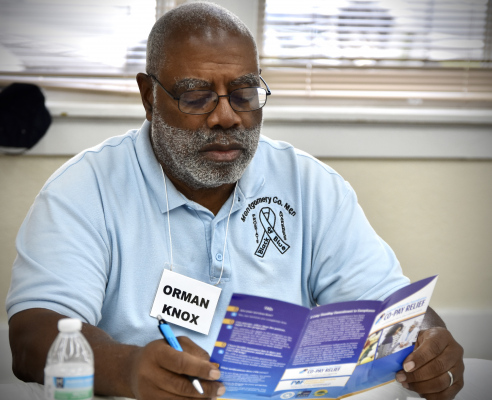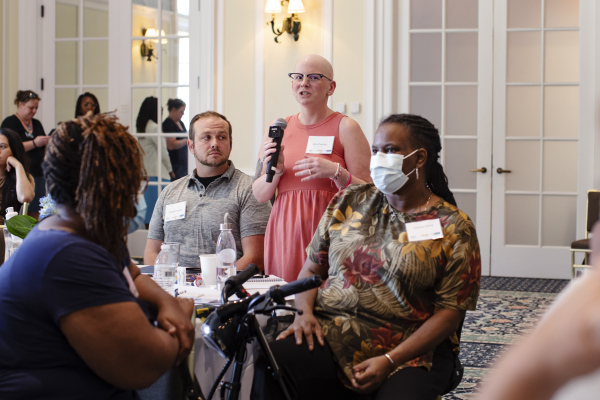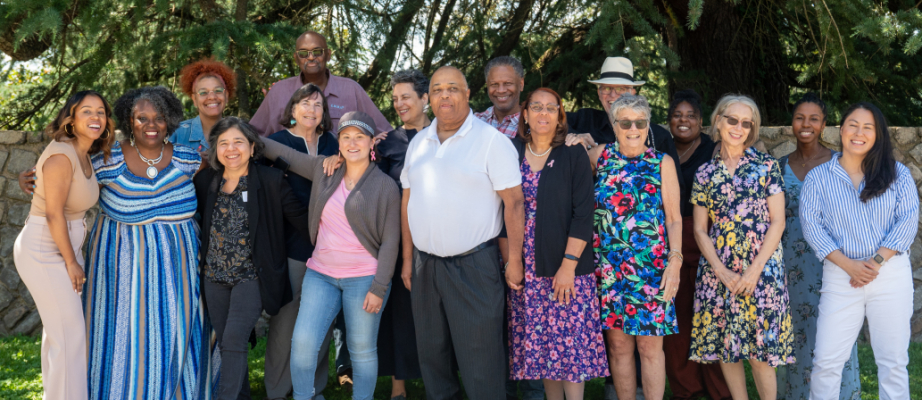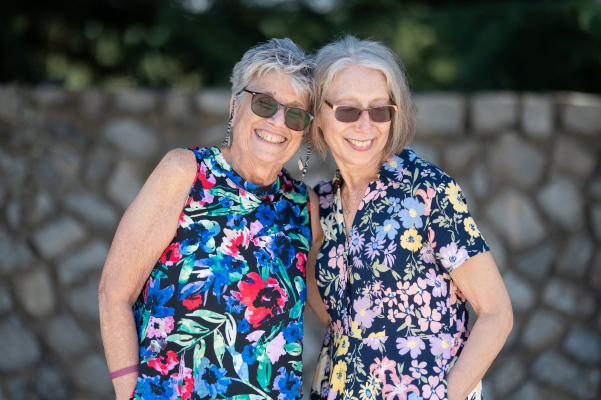
Advocating For Yourself and Others
*How to Best Tell Your Medical Story
*Introduction to Self Advocacy
*Beyond Self Advocacy
Get Started
We developed the Advocacy Curriculum with our partners to help people understand what it means to be an effective advocate and develop their advocacy skills. The curriculum is designed for patients, caregivers, health care providers and anyone who is interested in learning to tell their stories more powerfully, communicate what matters to them and change our health care system.
*How to Best Tell Your Medical Story
*Introduction to Self Advocacy
*Beyond Self Advocacy
Get Started
*How to Find the Health Care Team that Works for You
*Your Health Care, Your Way: A Guide to Making Informed Decisions
Get Started
*Introduction to Storytelling
*Reading and Writing Illness Narratives
*How to Best Tell Your Medical Story
*Radical Listening: Space, Time and Person
Get Started
Our foundational courses aim to equip learners with the knowledge, skills, and tools to effectively advocate for equitable and patient-centered healthcare.
Through a combination of theoretical instruction in courses such as Principles and Ethics of Advocacy, and practical application like Media for Advocacy, the full curriculum focuses on empowering individuals to understand health care advocacy and engage in meaningful change for diverse populations.
Key goals include:
Patient Advocacy: Train learners to advocate on behalf of themselves and others, ensuring their rights, preferences and needs are met within the health care system, while promoting culturally competent care.
Addressing Health Disparities: Identify and address social determinants of health and health care disparities affecting marginalized communities, with an emphasis on promoting equity and justice in health care delivery.
Effective Communication and Collaboration: Build skills in effective communication and active listening with health care providers, policymakers and the public to influence positive health outcomes and policy changes.
Ethical Decision-Making: Equip learners with ethical decision-making frameworks and considerations to address complex health care advocacy issues, balancing patient needs, resource allocation and systemic limitations.
"As a lifelong learner, I'm thrilled to find something to augment my passion and commitment to patient advocacy."
Setting the stage for this Patient Advocacy Curriculum, Gwen Darien, executive vice president of patient advocacy, engagement and education, leads users through the field of patient advocacy and the important role you have embarked on as a patient advocate. Users will learn the types of advocacy supported by PAF and NPAF as well as learn how we engage volunteers to promote person-centered care.
Advocating for the health, safety and rights of patients requires an understanding of the ethical obligations and political conflicts patient advocates must traverse. Led by Gwen Darien and Mary Scroggins, this course will explore the considerations advocates must factor in their decision making as healthcare change agents.
The third module explores the field of narrative medicine and discusses how we work to empower and amplify patient voices toward co-creating health for both patients and their health care team.
Media Advocacy, defined as the strategic use of mass media to advance public policy initiatives, plays a critical role in the political landscape and can be a force for change when it comes to advocacy and health care policy. Caitlin Donovan, senior director of public relations, discusses the impact of engaging the different forms of media in your journey as patient advocates.
In the follow-up to module 3, learners are led through this insightful writing workshop on narrative medicine. This module further explores the field of narrative medicine and challenges learners to critically explore the power of their voice even in difficult conversation.
You’ve learned that as advocates, our mission is to amplify the voices of those who face health inequities in our society. While our focus is on health care and the suffering caused by illness and disability, we must recognize that much deeper, broader inequities around social needs are often the root causes of these problems. In this module, led by Shonta Chambers, executive vice president of health equity initiatives and programs, learners will understand the historical context of the social determinants influencing health and how Patient Advocate Foundation works to address these social needs.
We work closely with organizations and advocates with deep roots in their communities to develop programs and initiatives. This co-created approach is based on respect for their understanding of the people they serve and a belief that we always can learn at least as much from our community partners as we bring to them. Led by Gwen Darien and Chris Wilson, this session will use examples to discuss how we develop these programs.
Objectives of this module include:
• Understand what it means to “co-create” a program
• Explore the steps to identify partners
• Examine how to implement co-created partnerships
• Review a case-study
• Think about the lessons learned from co-created programs
This next module highlights the partnership between National Patient Advocate Foundation and grassroots organization Sisters Working it Out (SWIO). Founded in 2001 by Dr. Monica Peek, SWIO’s mission is to serve as a catalytic force in the elimination of breast cancer disparities in the Chicagoland area. This is accomplished through programs that educate and empower women of color as well as connect them to quality preventive health services. SWIO provides compassionate care and support to women across the cancer continuum from outreach and screening through survivorship.
During this module, you will learn:
• What is advocacy in-place?
• The founding of SWIO
• Impact, how is it measured?
• How does community advocacy lead to system change?
In this final module of our Co-Creating Programs series, Gwen Darien is joined in conversation by Candace Henley, founder of Blue Hat Foundation. After battling and surviving colorectal cancer, Candace founded Blue Hat Foundation in 2010, whose mission is to educate, raise awareness, and provide resources to free screenings for minority underserved communities. As a champion advocate for education and empowerment, Blue Hat Foundation has partnered with organizations to help spread their message of awareness and advocacy. Henley says, “We have formed friendships and partnerships with amazing people who want to see me succeed and believe in our mission.”
Goals for this module include:
• Define what it means to nurture and sustain a partnership
• Examine a NPAF case study of “co-creating” programs
• Discuss the elements and importance of “co-creating” programs
In this module, author and psychotherapist Kathy Conway leads learners through the powerful journey of writing illness narratives. Learners will reflect on their own experience with illness and respond to prompts intended to invoke meaningful written narratives that promote personal healing and storytelling.
Many patients often feel challenged and intimidated by the small amount of time allotted for interactions with providers. Having the skills to efficiently articulate what matters most to you or your loved one is a key skill in self advocacy. In this module, led by author, Columbia University lecturer and lawyer Olga Lucia Tores, learners will understand what it means to be a “professional patient” and effectively tell your medical story.
The first two modules of this curriculum have focused on key skills in written and verbal storytelling. To round out the series, provider and scholar Dr. Rita Charon leads learners through the skill of active “radical” listening.
Gwen Darien, executive vice president of patient advocacy, education and engagement, and patient advocate Beverly Rogers, will lead an introduction to self-advocacy, providing learners with a foundation for communicating what matters most to them and the people they care for. This module will include a guide for patients to explore the many responsibilities and ethical obligations patient advocates face in their work in advocating for person-centered health care.
Reflecting on what you have learned through your lived experiences within health care and these series of modules centered in self-advocacy, this next module will provide some next steps to continue to activate in your journey in patient advocacy. Jamie Trotter, associate director of patient advocacy, will provide an introduction to patient advocacy, introducing learners to the full, 13-module patient advocacy curriculum. Learners will assess the three types of advocacy and how self-advocacy fits into this model.
As advocates, we ask: how can we bridge the gap between cutting-edge medical innovations and serving the actual patients we work with?
The answer lies in co-creation. At Project Innovation, we believe that research must be co-created with patients, who likewise must be equipped with the skills to communicate their needs and the space to design the solutions that work for their own communities.
Every patient should reap the benefits of scientific and medical advances and receive the highest quality person-centered care throughout their health care journey.Alan Balch, PhD
Radical listening is at the heart of all patient-centered care, and it depends on mutual trust and trustworthiness between patients and their providers.Gwen Darien
Decision Making for People Living with Cancer as a Chronic Disease
